Moringa: 40 Reasons Why It Should be Your Next Superfood
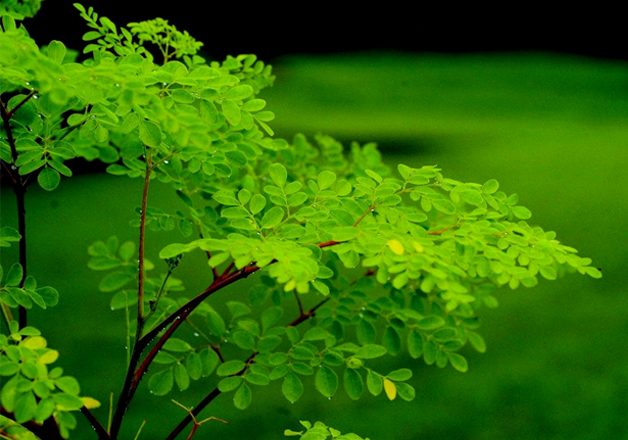 “It is health that is real wealth and not pieces of gold and silver.” – Mahatma Gandhi
“It is health that is real wealth and not pieces of gold and silver.” – Mahatma Gandhi
Moringa Oleifera, a rising star among superfoods, is a fast-growing and dough-resistant plant. It is the most widespread species of the genus Moringa and the only genus in the family called Moringaceae. In 2008, Moringa was recognized as the “Botanical of the Year” by the National Institutes of Health. Today, Moringa research is supported by the National Geographic Society and National Science Foundation.
Moringa Oleiferai’s the world’s most powerful source of natural multivitamins and antioxidant. The plant contains over 92 nutrients, 46 antioxidants, and vitamins A-Z. Moringa contains almost all the vitamins that can be found in vegetables and fruits. Most of these vitamins contained in Moringa are in larger proportions. It boasts such minerals as calcium, iron, potassium, selenium, zinc, magnesium, phosphorus, copper and sulfur. The plant contains several thousand times more Zeatin than any other plant known on land.
Moringa has been around for many years, being regarded as the “Miracle Tree or the Tree of Life” in the Philippines and India. Africans have given different names to the plant, which are translated as “Never Die”, “Mother’s Milk” and “The Only Thing that Grows in the Dry Season.”
The name “Moringa” is derived from the Malayalam word “Muringa.” The tree is also called “Drumstick Tree” by the British, due to the fruits looking like a long drumstick hanging from the tree. Moringa is also known as “Horseradish Tree,” “Behen tree,” “Ben Oil Tree” or “Benzoil Tree,” “Benzolive Tree,” “Kelor,” “Marango,” “Mlonge,” “Moonga,” “Mulangay,” “Nébéday,” “Saijhan,” and “Sajna.”Finally, some gardeners call it “Malongay.”
Moringa was utilized by the ancient Greeks, Egyptians and Romans. Today, itis mostly produced in India. Most likely, the tree originated from India. Later, it spread throughout Africa’s tropical zones and in South America. The plant is also found in Afghanistan, Arabia, Bangladesh, Haiti, the Himalayan region, Malawi, Pakistan, the Philippines, Senegal, Sri Lanka, Taiwan, Thailand, and in a number of countries of Oceania. In Western countries, dried leaves of Moringa are popular as dietary or nutritional supplements and are available in both capsule and powder form.
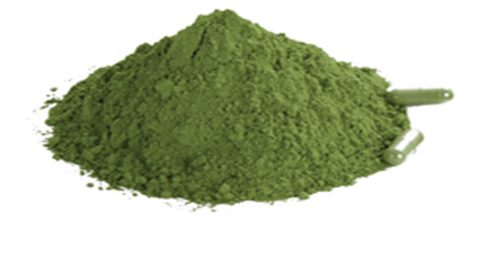 Moringa flowers can be characterized as fragrant and bisexual, surrounded by 5 small, round, yellowish-white petals. The tree grows mainly in semiarid, subtropical and tropical areas. Moringa loves sun and heat. Given the ability to grow using rainwater, the plant is suitable for dry regions.
Moringa flowers can be characterized as fragrant and bisexual, surrounded by 5 small, round, yellowish-white petals. The tree grows mainly in semiarid, subtropical and tropical areas. Moringa loves sun and heat. Given the ability to grow using rainwater, the plant is suitable for dry regions.
Although Moringa is not a new food, it is certainly a new food for many Americans. Moringa is a vitamin-packed plant that rewards gardeners by producing quickly and benefits entire cultures by the many helpful ways it can be used. Virtually every part of the tree is beneficial from the leaves to the bark, seeds, fruit pods, and even the roots.
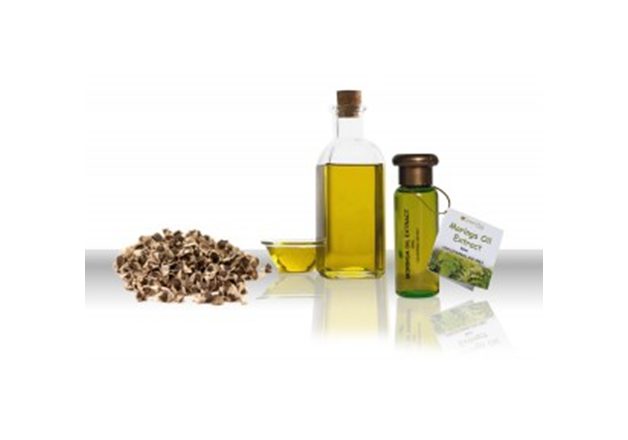 Moringa leaves have been popular in traditional medicine, including both the Ayurvedic and Unani systems, which are among the world’s most ancient healing systems. In the Ayurvedic system of medicine, professionals claim it can be used to prevent about 300 diseases. The modern scientific community has already devoted over 1.300 articles and publications to these claims.
Moringa leaves have been popular in traditional medicine, including both the Ayurvedic and Unani systems, which are among the world’s most ancient healing systems. In the Ayurvedic system of medicine, professionals claim it can be used to prevent about 300 diseases. The modern scientific community has already devoted over 1.300 articles and publications to these claims.
Though the Moringa plant was unknown in the market 10 years ago, today it is gaining more and more popularity thanks to its nutritious value and numerous health-enhancing benefits. Moringasuperfood is rich in compounds such as moringine, moringinine, and antioxidants like kaempferol, quercetin, rhamnetin, and a number of polyphenols.
Moringa seed oil isn’t only used in food, cosmetics and perfume industries, it is also great for oiling machinery. Moreover, Moringa oil can resist rancidity, which cannot be said about most vegetable oils. So it can serve as a fine preservative for foods.
Here are the top reasons why Moringa is the most important food producing plant you should add to your diet.
[accordion]
[accordion_item title=”Table of Content” active=”yes”]
1. High in Protein – A Complete Protein
2. Boosts the Immune System
3. Purifies Water
4. Reduces Inflammation
5. Detoxifies the Body and Improves Digestion
6. Treats Depression
7. High in Vitamin A
8. High in B Vitamins
9. High in Vitamin C
10. High inVitamin D
11. High in Vitamin E
12. High in Vitamin K
13. Rich in Antioxidants
14. Rich in Calcium
15. Rich in Chlorophyll
16. Rich in Iron
17. Rich in Magnesium
18. Rich in Potassium
19. Stimulates Muscle Growth
20. Improves Wound Healing
21. Used for Sleep
22. MayLower Blood Sugar Levels
23. Stimulates Metabolism and Boosts Energy Levels
24. Goes Great in Smoothies
25. Used for Anti-aging, Acne, Dry Skin, and Antiseptic/Anti-inflammatory Purposes
26. Used in Perfume
27. Used in Hair Care Products
28. Used in Aromatherapy Oils
29. Inexpensive to Grow
30. Easy to Grow
31. Enhances Soil
32. Drought Tolerant
33. Important Food Source To Combat Malnutrition
34. Animals Benefit from Moringa Consumption
35. Prevents and Cures More Than 300 Illnesses
36. Provides Anti-Cancer Benefits
37. Grows Extremely Fast
38. No Harmful Side Effects
39. Helpful for Weight Loss
40. Helps Breastfeeding Mothers Produce More Milk
[/accordion_item]
[/accordion]
1. High in Protein – A Complete Protein
Moringa contains 18 amino acids, and all 8 essential amino acids with different amounts: histidine, isoleucine, leucine, lysine, methionine, phenylalanine, threonine, tryptophan, and valine.
The plant has the highest protein ratio among plants that have been studied on earth so far. Its protein quality and quantity are similar to soy beans. Unlike soy, Moringa doesn’t trigger allergies so babies can also take it for nutrition. The plant is not genetically modified by humans. Comparatively, Moringa (100 grams dry powder) contains 9 times the protein of yogurt.
Vegetarians and vegans will be excited to learn of another plant that contains high amounts of proteins besides quinoa, nuts, kale and broccoli. In comparison, 100g of broccoli dishes to 2.8 grams of protein, while 100g of Moringa leaves supply 9.4g. You would have to eat 2 whole eggs to get that much protein in your meal.
2. Boosts the Immune System
The immune system needs to be fed adequately so to be able to have enough power to fight against various diseases. Moringa is a great immune booster. Generally, immune system boosters work different ways. They are important for increasing the number of white cells in your immune system to better fight and win.
Vitamin C is one of the most important strengtheners of our immune system. It protects us against colds and flu, and many other infectious diseases. Moringa boosts the immune system with more vitamin C than oranges.
Moringa contains 7 times the amount of vitamin C than orange juice. One ounce of Moringa leaves will provide you with the recommended daily amount of vitamin C – 60 mg. Moreover, 1/2 cup of cooked leaves contains the recommended daily amount of vitamins C. 1/2 cup of raw pods will provide the recommended vitamin C amount for a day. Finally, the recommended daily amount of vitamin C can be obtained through 1 ounce of Moringaraw leaves.
3. Purifies Water
Research in the field has shown the extracts from Moringa seeds can purify water. Based on a new study, Moringa seeds can also be used to separate different materials. Separation of materials of great significance in the mining industry. Thanks to this new knowledge, the need for expensive synthetic chemicals could be reduced to a great extent.
When added to dirty water, Moringa seeds produce particles that latch on to the impurities in the water sinking the unpurified water to the bottom. The seed cake that remains after oil extraction is considered as a fertilizer. The latter is also used for water purification purposes. Moreover, it can be used to remove salt from seawater. Moringa seeds have even been found to work better for water purification than many of the conventional synthetic materials in use today.
From a digestive standpoint, Moringa is high in fiber that, as the Epoch Times put it, “works like a mop in your intestines… to clean up any of that extra grunge left over from a greasy diet.” Also, noteworthy are its isothiocyanates, which have anti-bacterial properties that may help to rid your body of H. pylori, a bacteria implicated in gastritis, ulcers, and gastric cancer.
4. Reduces Inflammation
According to the Epoch Times, MoringaOleifera boasts anti-inflammatory properties. The point is that the leaves, pods, and seeds of Moringacontain phenolic acids,isothiocyanates, and flavonoids.
Traditionally, the strong anti-inflammatory properties of the plant have been used to treat stomach ulcers. Also, Moringa is used toprevent chronic inflammation of the liver.
5. Detoxifies the Body and Improves Digestion
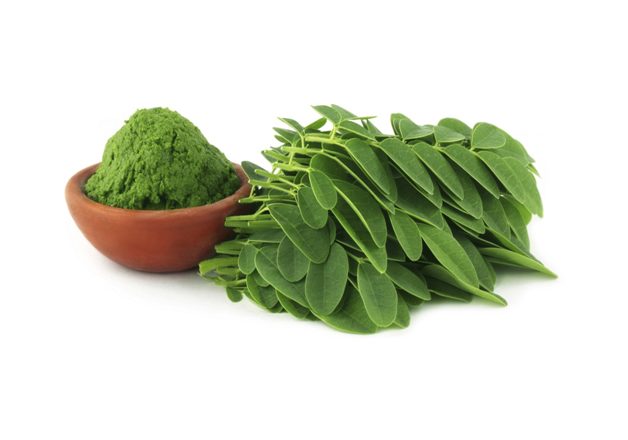 Moringasuperfood is an exceptional supplement to human nutrition. This unique plant is of great help to our digestive system. To maintain good digestion, our organism needs detoxification. Moringa helps our body remove toxins, thus greatly contributing to our health.
Moringasuperfood is an exceptional supplement to human nutrition. This unique plant is of great help to our digestive system. To maintain good digestion, our organism needs detoxification. Moringa helps our body remove toxins, thus greatly contributing to our health.
The point is that the oils and fibers of Moringa are perfectdetoxicantsthat help our intestines get rid of food remnants and toxins. This enables our body to absorbfood nutrients fully and more easily.
6. Treats Depression
Moringa not only fights depression, but it also energizes the body. Vitaminsand other nutrients contained in this superfoodhelp tackle nutrient deficiency, thus treating depression.
A vitamin imbalance may cause hormonal imbalances and depression. High amounts of vitamins A, B, C and E, and the minerals such as calcium, potassium, and iron, together with a large number of antioxidants found in Moringa are a perfect natural means to fight depression.
7. High in Vitamin A
Moringa contains 4 times the vitamin A (Beta Carotene) than carrots. This comparison is based on 100 grams dry powder of Moringa leaves.
It is essential to healthy vision, and may slow declining retinal function in people with retinitis pigmentosa. The light-absorbing molecule retinal is extremely important for both color and scotopic vision. The latter is the vision under low light conditions.
Vitamin A plays a crucial role in bone growth, reproduction, and immune system health. It also helps the skin and mucous membranes repel bacteria and viruses more effectively. Besides, Vitamin A functions as an irreversibly oxidized form of retinoic acid. This is an important hormone-like factor that counts for the growth of various cells such as epithelial.
8. High in B Vitamins
Moringa is a rich source of vitamins B1(Thiamine), B2(Riboflavin), B3(Niacin), B6 (Pyrodoxine), and B7(Biotin). Moringa is a unique plant to contain high levels of all these B vitamins. It is rich in all essential B vitamins – Niacin, Riboflavin, and Thiamine. Vitamin B is regarded as a group of 8 vitamins. This group is known as the vitamin B complex.
B vitamins play very important roles. They count for correct and speedy metabolism, strengthen our immune system, provide healthy skin, muscle and hair tissue, promote cell growth (red blood cells included), thus preventing anemia. B vitamins play many other important roles in the functioning of our organism such as health providing, protective and more.
9. High in Vitamin C
Research in the field has shown the consumption of fruits and vegetables that are rich in vitamin C(Ascorbic Acid) improves the immune system of our organism. This is important for fighting infections and diseases, and remove oxygen-free radicals from our body.
When it comes tothe nutrient density of Moringa, the plant contains 12 times the vitamin C of oranges (based on 100g dry powder). The pods and leaves of the fresh plant serve as an excellent source of vitamin C.
You can get 145 µg or 235% of the recommended daily amount of vitamin C from 100g of pods. Also, you can get 51.7 µg or 86% of the recommended daily intake of vitamin C from 100g of greens.
10. High inVitamin D
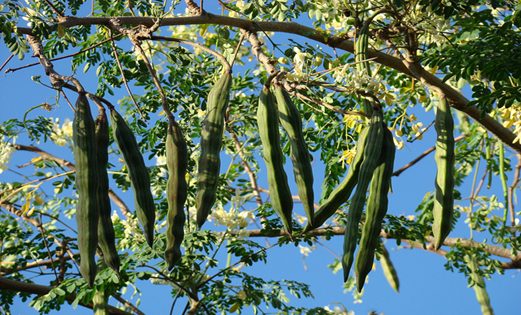 Moringa is a powerful source of natural multivitamins and antioxidants. It is rich in vitamin D(Cholecalciferol), which promotes calcium absorption in the gut. Moreover, vitamin D counts for normal concentration between phosphate and serum calcium. This is important for providing proper bone mineralization and hypocalcemictetany prevention. Other important roles played by vitamin D include bone growth and bone remodeling.
Moringa is a powerful source of natural multivitamins and antioxidants. It is rich in vitamin D(Cholecalciferol), which promotes calcium absorption in the gut. Moreover, vitamin D counts for normal concentration between phosphate and serum calcium. This is important for providing proper bone mineralization and hypocalcemictetany prevention. Other important roles played by vitamin D include bone growth and bone remodeling.
Vitamin D should be kept at sufficient levels, otherwise our bones will become thin and will lose their shape. Vitamin D prevents rickets in children. Also, it prevents osteomalacia in adults, and, together with calcium, it prevents osteoporosis in older adults. What is more, vitamin D modulates the neuromuscular and immune functions of the body and reduces inflammation.
11. High in Vitamin E
Moringa has 20 times more vitamin E(Tocopherol) than Tofu (bean curd). The latter is famous for being rich in vitamin E. 1 teaspoon powder ofMoringa provides 40% of the recommended daily amount of vitamin E.
Moringa is a great source of vitamin E. The latter fights cholesterol, prevents neurological diseases, including Alzheimer’s, and protects our organism against toxins. Moreover, vitamin E is important for our skin and hair.
Vitamin E is a fat-soluble vitamin. It enables essential fatty acids and vitamin A not to oxidate in the cells of the body. Also, vitamin E plays an important role in the prevention of breakdown of body tissues.
12. High in Vitamin K
The leaves of Moringa are high in Vitamin K. The latter provides normal blood coagulating in the body. Vitamin K is specifically important for the liver. It enables the liver to produce factors necessary for proper blood clotting.
The mentioned factors include factor II or prothrombin, factor VII or proconvertin, factor IX or thromboplastin component, and factor X or Stuart factor. Other factors (dependent on vitamin K)necessary for blood coagulationinclude such proteins as C, S and Z.
Vitamin K deficiency, which causes disturbances of liver function, can result in deficiencies of coagulation factors and may cause excess bleeding.
13. Rich in Antioxidants
The leaves of the plant are rich in antioxidants, including chlorogenicacid. Studies have shown chlorogenic acid slows the process of cells’ absorption of sugar, thus counting for lower blood sugar levels.
Moringa contains more antioxidants than spinach. The leaves contain 3 times more iron than spinach. Moringa is made up of 92 nutrients and 46 antioxidants. Thanks to the high amount of polyphenols in Moringa leaves, the plant demonstrates perfect antioxidant activity.
The extracts of both tender and mature leaves provide strong antioxidant activity against free radicals and protect major biomolecules against oxidative damage. Finally, a study of women taking 1.5 teaspoons of Moringa leaf powder on a daily basis for 3 months has shown a significant increase in antioxidant blood levels.
14. Rich in Calcium
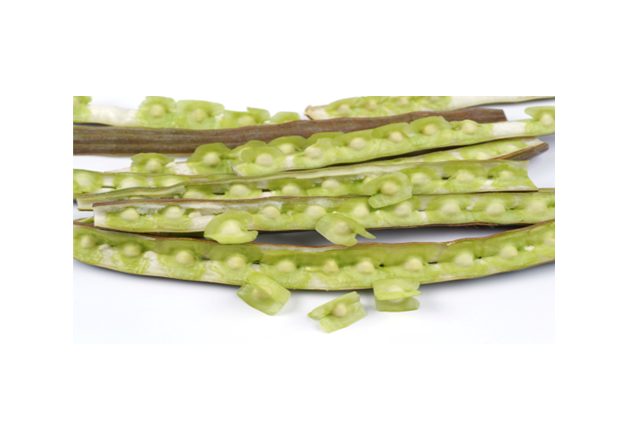 100 grams dry powder of Moringacontains 17 times the calcium of milk. The leaves of the plant contain high levels of calcium – 500mg per 100g of leaves. Moringa leaf powder can contain approximately 5 times more calcium per 100g. One serving of Moringa leaves provides us with approximately 125 percent of our recommended daily intake of calcium.
100 grams dry powder of Moringacontains 17 times the calcium of milk. The leaves of the plant contain high levels of calcium – 500mg per 100g of leaves. Moringa leaf powder can contain approximately 5 times more calcium per 100g. One serving of Moringa leaves provides us with approximately 125 percent of our recommended daily intake of calcium.
Calcium is a key nutrient for your body to stay strong and healthy. Almost every cell in the body uses calcium in some way, including the nervous system, muscles,and heart. It is also an essential building block for lifelong bone health in both men and women.Besides, calcium maintains blood clotting.
Calcium is mostly stored in the bones and teeth. When blood needs calcium, the latter is released from the bones. Thus, calcium deficiency will make bone destruction exceed bone production, especially after one’s thirties. This condition is known as osteoporosis. Calcium and magnesium work in synergy. Our organism needs magnesium to absorb calcium.
15. Rich in Chlorophyll
Moringa contains 4 times chlorophyll of wheatgrass. The latter is famous for its high levels of chlorophyll. Moringa is a rare food to contain chlorophyll together with so many other nutrients and have a fine taste. It is a more powerful source than dark green vegetables and herbs such as parsley, Romaine lettuce, or spinach in that it provides chlorophyll together with many other nutrients.
Chlorophyll effectively helps alkalize our body. Foods with Moringa leaves contain one of the highest levels of chlorophyll. You can just add Moringa powder into any juice that cantinas leafy greens and enjoy a fast and highly efficient way of alkalizing your body to feel fresh and full of energy all day long.
16. Rich in Iron
Moringa leaves have more than 3 times the amount of iron contained in roast beef. 100 grams of dry powder contains 25 times the iron of spinach. Thanks to iron, Moringaincreases our mental clarity.
Iron is an important mineral for a number of functions in the body. The latter functions count for hemoglobin formation, body temperature regulation, muscle activity, brain development and functioning. Iron binds oxygen to the cells of the blood. The main function of iron is to transport oxygen and provide cell respiration.
17. Rich in Magnesium
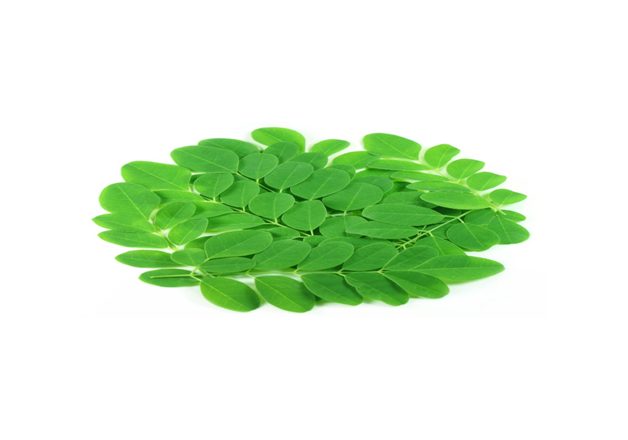 100g of Moringa leaves contain approximately 25mg magnesium, while the leaf powder can contain about 370mg magnesium per 100g. Magnesium and calcium have several similarities. For example, 60% of magnesium is found in the bones and teeth, and muscles contain its balance.
100g of Moringa leaves contain approximately 25mg magnesium, while the leaf powder can contain about 370mg magnesium per 100g. Magnesium and calcium have several similarities. For example, 60% of magnesium is found in the bones and teeth, and muscles contain its balance.
One serving of Moringa leaves provides us with approximately 61 percent of our RDI of magnesium. Magnesium is of vital importance to our health. It is essential for gastric motility and our intestinal function, and acts like a laxative. Besides, magnesium provides relaxation for the nervous system and blood vessels. As a result, it prevents high blood pressure, stress, and irritation.
18. Rich in Potassium
Given the nutrient density of Moringa, the plant contains 4 times more potassium than bananas. 100 grams dry powder of Moringacontains15 times the potassium of bananas.Potassium is of special importance for our brain and nerves.
Potassium is critical for helping nerves transmit signals, muscles contract, and cells maintain fluid balance inside and out. Newer scientific evidence demonstrates that potassium helps maintain normal blood pressure. Potassium also decreases the chances of recurrent kidney stones and possibly reduces bone loss.
19. Stimulates Muscle Growth
Moringa promotes muscle growth. This is thanks to all of the amino acids contained in Moringa, which are necessary for the growth of muscles. Moreover, the plant is rich in calcium, which is also of immense significance for normal body growth and for the development of our muscles.
Other important components that are needed for our muscle growth are called valine and arginine. The former counts for tissue repair and muscle metabolism, and the latter enhances muscle development.
20. Improves Wound Healing
MoringaOleifera contains high levels of zinc. The lattercounts for normal wound healing. Thanks to this component, Moringa supports healthy immune system. Besides, Moringa also contributes to healthy growth and development during pregnancy,childhood, and adolescence.
The amount of zinc contained in the leaves, pods and seeds of Moringa is similar to those contained in beans. According to a study, Moringa powder can increase wound contraction rate and help wounds epithelize faster.
21. Used for Sleep
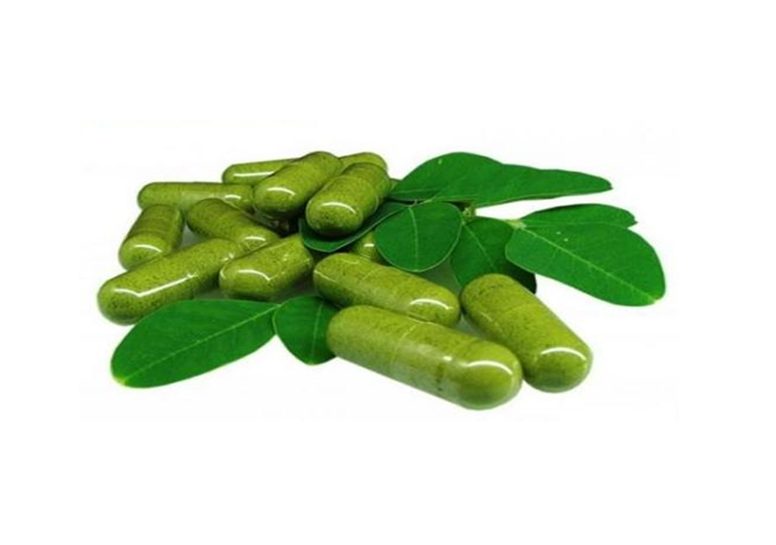 Moringasuperfood is an amazing sleeping aid thanks to a unique compound contained in its leaves. This component is called”Nebedaye.” Importantly, Moringa is a natural means.
Moringasuperfood is an amazing sleeping aid thanks to a unique compound contained in its leaves. This component is called”Nebedaye.” Importantly, Moringa is a natural means.
Nebedaye lowers the sugar levels in the blood, relaxes our muscles and soothes our digestive system. The ability to relax muscles enables Moringato be a great option not only for those whoneed a good night’s sleep, but also for those suffering from muscle spasms andpains.
22. MayLower Blood Sugar Levels
MoringaOleiferaappears to have anti-diabetic effects. This is thanks to the beneficial compounds contained in the plant leaves, including isothiocyanates. One study found women who took 7 grams of Moringa leaf powder on a daily basis for 3 months reduced their fasting blood sugar levels by 13.5 percent.
Separate research revealed that adding 50 grams of Moringa leaves to a meal reduced the rise in blood sugar by 21 percent among diabetic patients.
Dead Sea Moringa can be used to normalize blood sugar levels. It can also support weight loss and normal blood pressure, enhance nutrition and maintain normal glucose levels in the blood.
23. Stimulates Metabolism and Boosts Energy Levels
Moringa leaves are a natural means to boost energy and provide alertness.The plantis also used as a nutritional supplement andtonic.
Packed with nutrients, Moringa increasesour metabolism. All these nutrients keep the body balanced and enhance natural energy production. Controllingour metabolism,this amazing superfood nourishes us with a striking variety of vitamins,nutrients, and antioxidants.
24. Goes Great in Smoothies
Being the world’s most nutrient-dense superfood, Moringa is an unmatched source to boost endurance,metabolism,and weight loss.This superfoodtastes and smells great. Also, it easily mixes in teas and smoothies.
The incredible amount of vitamins, nutrients, antioxidants, amino acids, anti-inflammatories,and minerals contained in Moringa turns any smoothie into a magicbeverage. When used from the powder form, or simply added from the leaves, Moringa’s mild flavor hides when paired with juices or fruit smoothies.
Moringa powder can be mixed with a great variety of ingredients, including strawberries,frozen blueberries,frozen red raspberries, frozen fresh spinach leaves, chilled coconut water, chilled peeled oranges,chia seeds, and more.
25. Used for Anti-aging, Acne, Dry Skin, and Antiseptic/Anti-inflammatory Purposes
When extracted from the seeds, Moringa oil contains many sought-after properties for treating rough or dry skin. Moringa oil has been shown to help clear blackheads and pimples. Moringa oil antioxidants fight wrinkles and rejuvenate dull, tired and aging skin. In addition, the oil has been known to help insect bites, rashes, sunburn and other skin infections.
Moringais extremely rich in Zeatin. The latter helps new skin cells grow faster than old skin cells die. As a result, wrinkles get perfectly reduced on your face and body.Besides, high levels of sulfur found in Moringa are also essential for our skin health and beauty.
When directly applied to the skin, Moringa acts as a germ-killer or drying agent (astringent). The plant can also treat athlete’s foot, dandruff, a variety of infections (abscesses), gum disease (gingivitis), snakebites, warts,and wounds.
26. Used in Perfume
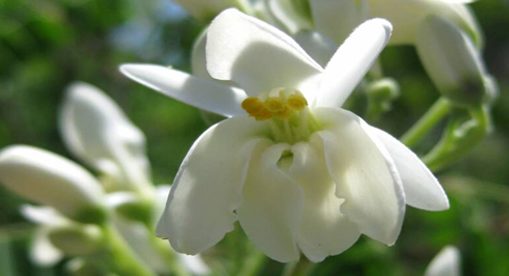 Moringa has incredible cosmetic value.Manufacturers in the perfume industry consider the oil as a powerful source as it can absorb and retain even the most unstable odors. Moringa oil is extremely stable and can resist rancidity. Thanks to its enfleurage properties, it has always been highly esteemed by perfumers.
Moringa has incredible cosmetic value.Manufacturers in the perfume industry consider the oil as a powerful source as it can absorb and retain even the most unstable odors. Moringa oil is extremely stable and can resist rancidity. Thanks to its enfleurage properties, it has always been highly esteemed by perfumers.
Moringa oil was used eventhousands of years ago. The ancient Romans valued the natural properties of the plant and used its oil in perfumes.Moringa oil was also used by the Egyptians. Because of itsunique oxidative stability,the Egyptians used toplace vases of Moringa oil in the tombs.
27. Used in Hair Care Products
Moringa oil is widely used in the industry of hair care products. When used regularly, Moringa oilcan excellently strengthen our hair. The oil should be applied by gently massaging it into the hair.This way, the vitamins and minerals contained in Moringaquickly get absorbed, providing our hair with a fine nourishing treatment.
Moring oil has the following important benefits for our hair: it moisturizes our scalp by reaching the hair roots, makes our hair stronger by taking important minerals and vitamins to our hair follicles, rejuvenates it from deep within, and treats dandruff and split ends.
28. Used in Aromatherapy Oils
Moringa is famous for its exceptional nourishing and moisturizing properties. It is widely used in aromatherapy oil production. Moringa seed oil is quite light and can easily spread and absorb into the skin. Itcan be used for all types of skin.
Moringa has all the necessary components that nourish our skin and protect it against dryness. These include vitamins A, B, C, E, unsaturated fatty acids, linoleic acids,palmitoleic and oleic acids, and 1.700 antioxidants. Besides, high levels of vitamin C in Moringamake its oil a natural brightener for skin that can even be used for skin tone.
Thanks to all these qualities, Moringa oil is regarded as one of the greatest cosmetic oils known so far.
29. Inexpensive to Grow
Moringa is inexpensive to grow. The seeds of the plant are inexpensive to purchase. A supply of 100 seeds is readily available on places like Amazon for under $5.
Moringa can grow indifferentenvironmental conditions. This is a drought-tolerant tree that can be grown in areas with annual rainfall amounts 250-1500 mm. The tree toleratesboth extremely high temperatures in the shade and a light frost.
An excellently-drained sandy loam or loam soil is a perfect fit for it, but the plant tolerates clay. To plant Moringa, you can use either direct seeding, transplanting, or hard stem cuttings.
30. Easy to Grow
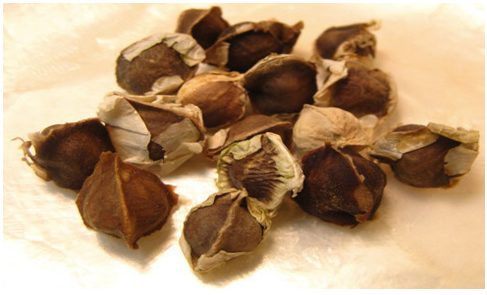 Moringa is so easy to grow. In areas where the harsh winters do not occur (or raised indoors), Moringa can be one of the easiest plants to grow and propagate. The Moringa seeds have a high germination rate, and new trees can be created simply by cutting off a branch of a tree and planting it in the ground.
Moringa is so easy to grow. In areas where the harsh winters do not occur (or raised indoors), Moringa can be one of the easiest plants to grow and propagate. The Moringa seeds have a high germination rate, and new trees can be created simply by cutting off a branch of a tree and planting it in the ground.
When cultivating the plant, you shouldkeep the environment under control until the root is formed. Moringa should be kept in its original container until the tap rootreaches 4-6 inches and a bark has formed. You can germinate the seeds year round. Temperatures above 70°F (with summer sun hours) are most suitable for the plant.
You can grow Moringa from a cutting, from a seed, in a plastic bag, or by transplanting.
31. Enhances Soil
Moringa has been compared with legumes, which enhance soil by enriching the composition with additional nitrogen. Studies vary on this topic, though many gardeners have seen that growing Moringa side by side with other garden crops does appear to improve the nitrogen levels in the soil.
According to a trial carried out in the Sheda Science and Technology Complex, organic farming based on Moringa seeds as fertilizersshowed significant improvement on soil nutrients.
With suchintegrated biodiversity management approach towards agriculture, developing societies can optimize crop production and environmental protection.
32. Drought Tolerant
Moringa is well known for toughing it out through some of the toughest and driest conditions.It can also grow fast.However, Moringa needs to be cut back several times. In some of the driest parts ofAfrica where few plants can survive the arid conditions, the tree was given the nickname “Never Die Tree” for its ability to produce through long stints without rain or water.
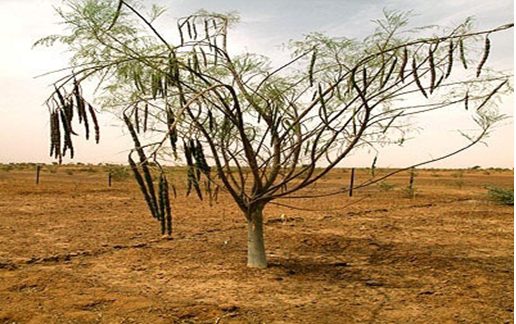 Moringa seems to survive nearly impossible conditions. It never dies even insaharan-sahel-scale droughts. Many vegetables find a help under the shades of the Moringa tree. Even small watering is enough to induce flowering to provide a continuous yield.
Moringa seems to survive nearly impossible conditions. It never dies even insaharan-sahel-scale droughts. Many vegetables find a help under the shades of the Moringa tree. Even small watering is enough to induce flowering to provide a continuous yield.
Due to the fact that it can grow and survive in such harsh conditions, the Moringa tree is gaining more and more use to combat world malnutrition in some of the poorest and desolate regions of the world.
33. Important Food Source To Combat Malnutrition
In a number of parts of the world, people consider Moringa as an important source of food. The point is thatit is easy and cheap to grow Moringa. What is more, the leaves of the plant contain so manyminerals and vitamins when dried.
Malnutrition prevention programs organized in Africa and India use Moringa as a source to fight malnutrition. The immature green pods or drumsticks of the tree can be prepared the way you prepare green beans.As for the seeds, they should be removed from their mature pods and cooked like peas. You can also roast them like nuts. The leaves of the plant can be cooked like spinach. You can also dry and powder the leaves to use them as a condiment.
34. Animals Benefit from Moringa Consumption
When added to the diets of dairy cattle, Moringa increases their milk production. The plant is considered as an alternative food for animals. Adding Moringa leaves and green stems to their dietwillboost cattle’s weight gain up to 32 percent and improve their milk production up to 43-65 percent.
What is more, Moringahelps animals better digest other food they eat.Finally, the plant enhances the welfare of animals. Studies have shown Moringa helps diseased pigs and horses get rapid improvement.
35. Prevents and Cures More Than 300 Illnesses
In West Africa, doctors use Moringa to prevent diabetes. In India, doctors use it to treat high blood pressure. This superfood is a nutrition for infants (6 months and older),pregnant and nursing mothers.Besides, Moringa is used to prevent pregnancy, andpromotes libido, acting like an aphrodisiac.Moringanourishes your whole bodyand helps you look and feel great.
Moringais used to treat: Allergy, Anemia (tired blood), Anxiety,Arthritis,Arsenic toxicity, AsthmaBacterial infections, Blackheads, Blood impurities, Bronchitis, Cancer, Catarrh, Chest congestion, CholeraClimactic disturbance, Colitis, Conjunctivitis, Constipation, Cough, Diabetesdysentery, Diarrhea, Dropsy, Dysmenorrhea, Ear infections, Eye infections, Epilepsy, Fever, Fluid retention ,Fungal infections, Glandular swelling, Gonorrhea, Hangover, Headache, Heart problems, Hepatic detoxification, Herpes simplex 1, High blood pressure, Hormonal imbalance, Hypocholesteremia, Hysteria, Intestinal ulcers, Intestinal spasms, Intestinal worms, Jaundice, Kidney stones, Malaria, Migraine, Parasitic infections, Pimples, Prostate disorders, Psoriasis, Respiratory disorders, Rheumatism, Scurvy, Semen deficiency, Skin infections, Sleep disorders, Sores, Sprain, Stomach pain, Stomach ulcers, Thyroid disorders, Tonsillitis, Tuberculosis, Urinary disorders, Viral infections, and more.
36. Provides Anti-Cancer Benefits
If all of these other reasons are not enough, what may prove to be the greatest reason of all to add Moringa into your daily diet is the research being done on the effects of eating Moringa leaves have on fighting cancer. According to preliminary experimentation,the plantcan protect patients against the Epstein-Barr virus.
Moringa root bark has been clinically demonstrated to be an effective treatment for post-menopausal ovarian cancer. Moreover, the plant has anti-tumor activities as it contains a compound called “niaziminin.”
While research is still forthcoming, scientists are optimistic about treating and preventing cancer with this superfood’s power packed ingredients.Today’sresearch on the anti-cancer and anti-tumor benefits of Moringa may soon give it a role in chemotherapy.
37. Grows Extremely Fast
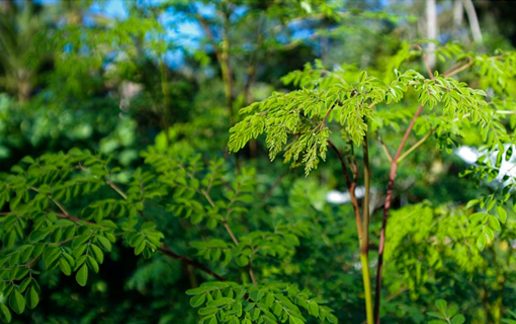 The Moringatree has been known to reach 12 feet in its first year. Once established, one tree alone can supply enough leaves and fruit for harvesting to supply nutrient-rich food for an entire family of 4.
The Moringatree has been known to reach 12 feet in its first year. Once established, one tree alone can supply enough leaves and fruit for harvesting to supply nutrient-rich food for an entire family of 4.
To plant Moringa, you should keep its seeds 1 inch deep. After planting, the soil should be kept moist. MoringaOleifera boasts genetic diversity, so it can take just 1 or 2-3 weeks for sprouting to occur. Also, seeds typically germinate faster in warmerconditions than in cooler. In a few months, Moringa seedlings can reach 9-15 inches. When the top of the tree is cut off to3-4½ feet, branching and bushing occur better.
Well-drained soils are the most suitable option for the plant. Moringa is drought resistant, but it doesn’t tolerate cold. Moringa may die under temperatures below 35 °Fif the roots get frozen
38. No Harmful Side Effects
No harmful side effects of MoringaOleifera leaves have been found so far. Thus, this magic superfood can serve as a safe means for both children and adults. It is very often used in bread, pasta andporridge, to add to the nutrient density of meals.
39. Helpful for Weight Loss
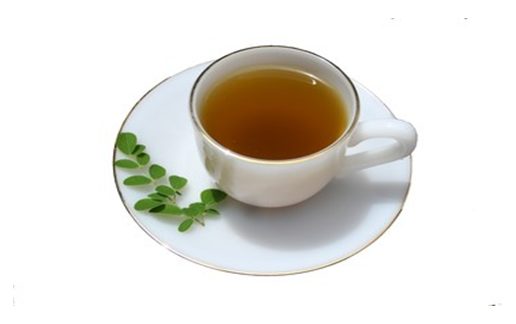 Moringaleaves have low levels of carbohydratesand fat, and are incredibly rich in vitamins, protein and minerals.Moringa, especially its leaves, are a great means to lose weight. Moringa is widely used at many slimming centers as a natural hunger suppressant. Both men and women can use Moringa to suppress hunger.
Moringaleaves have low levels of carbohydratesand fat, and are incredibly rich in vitamins, protein and minerals.Moringa, especially its leaves, are a great means to lose weight. Moringa is widely used at many slimming centers as a natural hunger suppressant. Both men and women can use Moringa to suppress hunger.
Those wishing to lose weight can eat Moringa leavesraw or cook them the way they cook vegetables. Moringa leaves can also be added to your tea or juice. You can drink a cup of tea made from Moringa leaves in the morning and another cup before each meal.
40. Helps Breastfeeding Mothers Produce More Milk
Clinical studies have shown MoringaOleifera increases the production of breast milk, no matter mothers take it before or after the birth of their babies.
Studies have shown that breastfeeding mothers produce a greater supply of milk when taking Moringa in their diet or supplementing with Moringa pills. Mothers who consumed Moringa were able to produce over 2 times the amount of breast milk as compared to those who didn’t take it.
Being a rich source of vitamins A, B and C, and such important nutrients as iron, calcium, and protein, Moringa is of special significance for mothers who are breastfeeding their babies. Most importantly, this is a safe and natural means to have more breast milk for your babies.
Conclusion
As Mark Bittman, a bestselling cookbook author, journalist and television personality, told during his TED talk, plants promote health. The United States Department of Agriculture (USDA) has acknowledged that it is plants that make people healthy. They encourage people to eat five servings of fruits and vegetables a day, together with more carbs.
If all of this seems too good to be true, that is certainly understandable. To be considered in the class of superfoods like Kale and Quinoa, an impressive resume was required. Moringa certainly fits the bill to be classified as the superfood of past, present, and future.
[accordion][accordion_item title=”REFERENCES:”]
- www.google.am
- en.wikipedia.org
- foodreference.about.com
- articles.mercola.com
- www.kulikulifoods.com
- www.foxnews.com
- www.treehugger.com
- miracletrees.org
- miracletrees.org
- authoritynutrition.com
- fitlife.tv
- idealbite.com
- www.jamaicaobserver.com
- researchonmoringa.blogspot.am
- www.moringatreeoflife.com/About_Moringa.html
- www.ted.com
- www.cysonline.org
- gardenpool.org
- www.treesforlife.org
- moringaforlife.com
- www.globalgiving.org
- www.cysonline.org
- www.sciencedaily.com
- www.nutrition-and-you.com
- www.moringapowder.com
- www.lifeinhealth.org
- en.wikipedia.org
- www.moringapowder.com
- moringa4athletes.blogspot.am
- www.naturalnews.com
- moringaphilippines.blogspot.am
- www.vitaleafmoringa.com
- www.geteyesmart.org
- theseasonaldiet.com
- www.moringapowder.com
- www.unitedcaribbean.com
- miracletrees.org
- www.scihub.org
- www.deadseamoringa.com
- pioneerthinking.com
- miracletrees.org
- www.stylecraze.com
- www.beautyandtips.com
- www.moringaherbs.com
- moringafacts.net
- sinai-moringa.com
- www.moringasource.com
- www.moringapura.com
- www.sciencedirect.com
- www.nysbs.com
- www.organicfacts.net
[/accordion_item][/accordion]


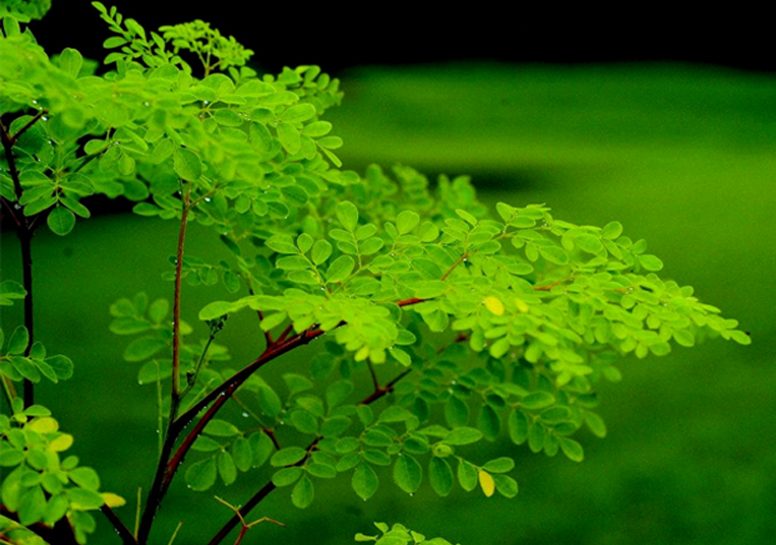
Mónica
Hola:
Contactamos desde el despacho especializado en optimización fiscal y contabilidad.
El cambio de normativas y el desconocimiento en el área fiscal son los dos principales riesgos que enfrentan las empresas españolas actualmente. En los últimos 15 años, hemos colaborado con empresas como la tuya ofreciendo un asesoramiento experto contable y fiscal a medida.
Por ello, nos gustaría proponerte un estudio de tu situación con uno de nuestros especialistas. Durante esta semana, no tendría ningún coste para ti el análisis.
¿Podrías facilitarme un número de teléfono?
Juana
Hola Newfoodcenter! Te escribo desde el Departamento de Prensa y hemos visto tu negocio como una excelente oportunidad para ser destacado en noticias.
Al ser presentado en más de 60 periódicos digitales de alta autoridad, podemos mejorar la reputación y el posicionamiento de tu empresa.
Además, cuando tus clientes busquen información sobre ti, verán tu relevancia y preferirán elegirte por encima de la competencia.¿Podrías proporcionarme un número de teléfono para ofrecerte dos meses gratuitos?
Gracias .
Sol
Estamos interesados en Newfoodcenter.
Estamos interesados en hablar con vosotros para que Newfoodcenter pueda aparecer en prensa y logre una mejor posición en internet. Se crearán noticias reales dentro de los periódicos más destacados, que no se marcan como publicidad y que no se borran.
Estas noticias se publicarán en más de cuarenta periódicos de gran autoridad para mejorar el posicionamiento de tu web y la reputación.
¿Podrías facilitarme un teléfono para aplicarte un mes gratuito?
Muchas gracias.
Celia
Newfoodcenter propuesta.
Hemos visto tu negocio y creemos que tiene mucho potencial.
Publicaremos tu empresa en más de 60 periódicos digitales de alta autoridad, lo que mejorará tu reputación, y posicionará tu web en las primeras posiciones de Internet. Así, cuando los clientes busquen información sobre ti, verán que tu empresa es conocida y confiarán más en ella.
Además, queremos ofrecerte dos meses gratuitos para que pruebes el impacto sin compromiso.
¿Podrías facilitarme un número de teléfono para comentarte los detalles?
Quedo pendiente de tu respuesta.
PD: Si prefieres no recibir más información, responde con “No estoy interesado” y no volveremos a contactarte.
Gloria
Propuesta para Newfoodcenter.
Hola, es un placer saludarte.
Te escribo porque sería interesante comentar contigo la opción de que Newfoodcenter posicione en los primeros lugares de internet y que aparezca cada mes como noticia en cientos de periódicos digitales, con artículos reales dentro del periódico que no se marcan como publicidad y que no se borran.
Estas noticias se publicarán en más de cuarenta periódicos de gran autoridad para mejorar el posicionamiento de tu web y la reputación.
¿Podrías facilitarme un teléfono para aplicarte un mes gratuito?
Muchas gracias.
Alicia
Propuesta para Newfoodcenter.
Hola, es un placer saludarte.
Te escribo porque sería interesante comentar contigo la opción de que Newfoodcenter posicione en los primeros lugares de internet y que aparezca cada mes como noticia en cientos de periódicos digitales, con artículos reales dentro del periódico que no se marcan como publicidad y que no se borran.
Estas noticias se publicarán en más de cuarenta periódicos de gran autoridad para mejorar el posicionamiento de tu web y la reputación.
¿Podrías facilitarme un teléfono para aplicarte un mes gratuito?
Muchas gracias.
benitia lopez
I was diagnosed with human papilloma virus (HPV) 4 years ago and i met a doctor he told me there is no cure and i have be taking some medication the warts multiplied when trying to removed them and it got me embarrass and pains, luckily few weeks ago i was recommend to Dr Ogedegbe for natural treatment after one week i got 100% cure and all the wart and pains got disappeared, i shared this post because its part of my life experience, incase anyone need speedy help about this cure email Dr Ogedegbe via dr.ogedegbe6@gmail.com or Whatsapp him now on +2349121737553
Laura
Propuesta para Newfoodcenter.
Hola, es un placer saludarte.
Te escribo porque sería interesante comentar contigo la opción de que Newfoodcenter posicione en los primeros lugares de internet y que aparezca cada mes como noticia en cientos de periódicos digitales, con artículos reales dentro del periódico que no se marcan como publicidad y que no se borran.
Estas noticias se publicarán en más de cuarenta periódicos de gran autoridad para mejorar el posicionamiento de tu web y la reputación.
¿Podrías facilitarme un teléfono para aplicarte un mes gratuito?
Muchas gracias.